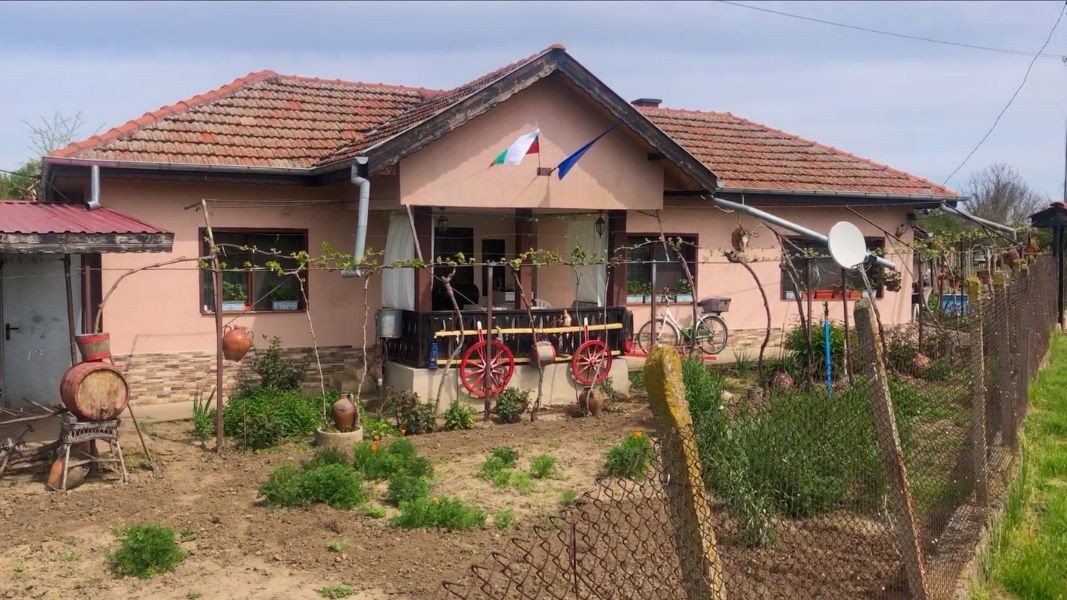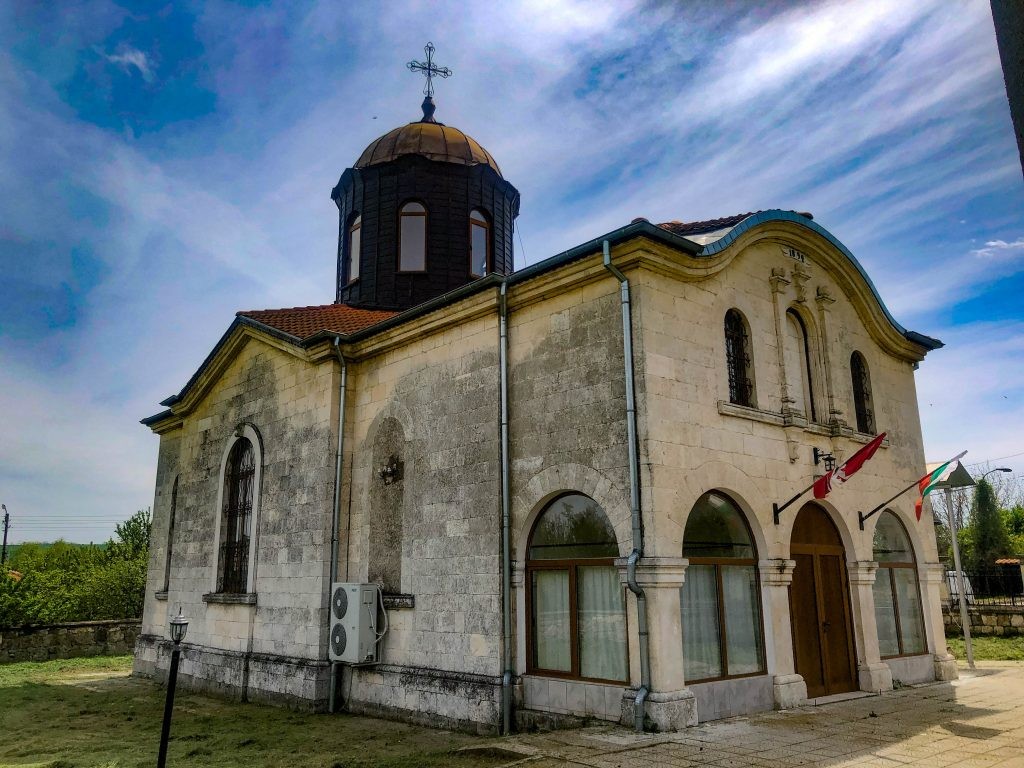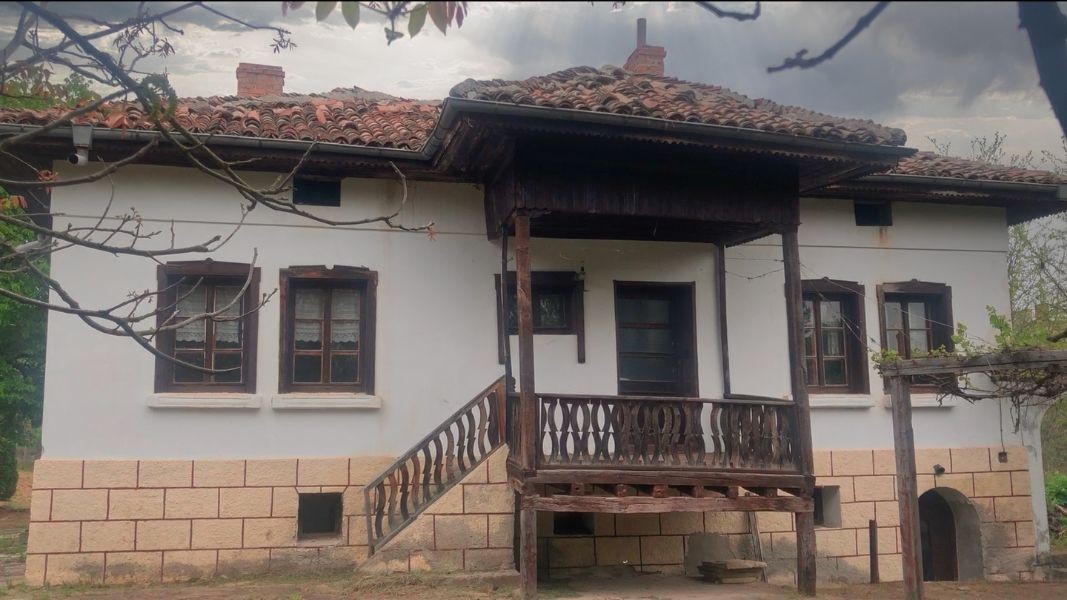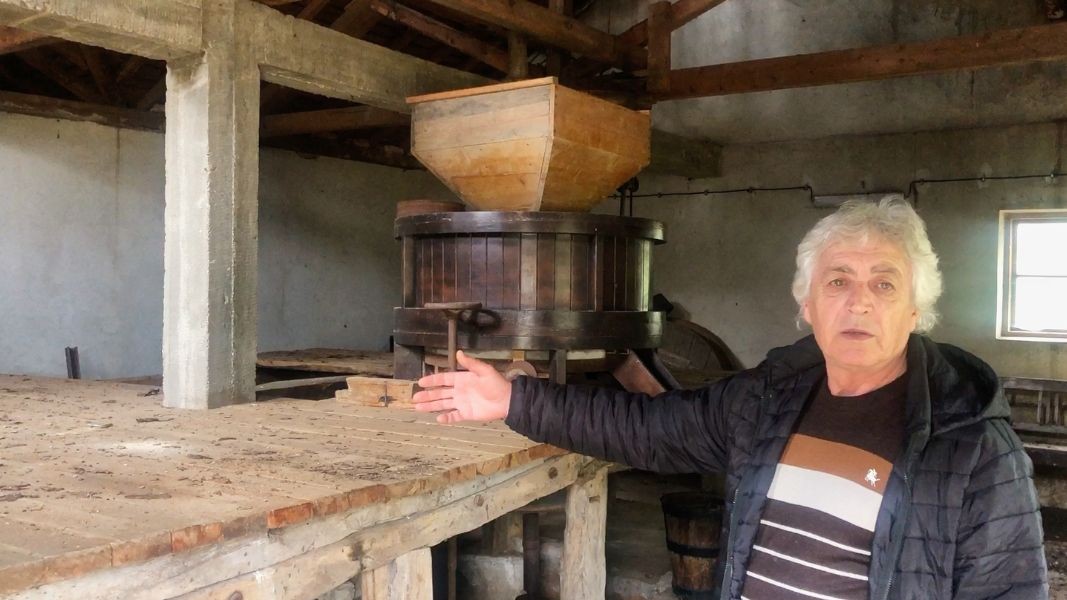The first thing anyone notices upon arrival in Garvan village are the beautiful and well maintained Dobrudzha-style houses. The village lies at the heart of Dobrudzha, the “granary of Bulgaria”, not far from the town of Silistra, and has a population of no more than 300 permanent residents. There are also several families from abroad who have settled here, who very much enjoy the beautiful landscapes, the peace and calm, but most of all – that living in Bulgaria is so cheap.

But why is the village Called Garvan (meaning raven)? Here is the surprising answer from Dimitar Nedelchev, former mayor deputy, who has lived in the village for many years:
“Garvan actually comes from the word karvan or karun, or something of this kind, which means “big snow”. Interestingly, there are several villages in this country called Garvan. Even in Romania, across the river, I went there two-three years ago, and I saw the sign of the village – it says Garvan.”
Harvesting the wheat, milling the flour or the maize, and making bread has been part of the life of the locals since time immemorial. Today, the crops grown in the area are wheat, barley, maize, rapeseed… The village has more than 2,000 hectares of farmland, and most of it is cultivated by the 16 December agricultural cooperative, founded in 1992.
“The village came into its heyday after the wars of 1918-1920, i.e. after World War I and the first Balkan war. That was when houses of this kind started to be put up, and this continued for many years. People started to buy more modern equipment, like iron ploughs, threshing machines and other kinds of farming machinery. The primary occupation people traded in was farming, and most of all grain production,” Dimitar Nedelchev says. 
The museum of Dobrudzha life and culture is housed in a beautiful two-storey 19th century house that once belonged to a local farmer. Everything here has been preserved as it once was – the old sofa, the fireplace, there are national costumes on display, rugs and other items people used in their everyday lives 100 years ago. There is another collection of items tracing the farming life of our ancestors at the local chitalishte (community culture club).
People in Garvan and the surrounding villages have their own dialect and traditions. They call themselves grebentsi (from greben, comb) because of one peculiarity in their clothing. Once, young women would put what was known as “resin kachul” on their heads, shaped like a rooster comb. Regrettably, no “comb” anywhere in the region has come down to us so see can actually see what it looked like. However, there is a real, functioning mill in the yard of the Dobrudzha museum-house in the village. While he is showing us how it works, Dimitar Nedelchev explains: 
“It was for grinding maize flour which was used as animal feed, but in those days it was used as food for people as well. This here is the milling space. There is a big platform onto which the sacks of maize, or a maize-and-wheat mix were lifted. From there, they were lifted into the basket by hand – the basket is set in motion by a marine engine. There were many floating mills along the Danube, and this engine was probably taken from one of them. It sets the wheel in motion by belt drive, and the maize is ground up by two big stones.”
The engine was made in Munich at the turn of the 20th century. The Garvan mill is a centerpiece during the wheat and bread festival taking place every year in the yard of the Dobrudzha house, and marking the start of the harvest season for the entire region.
What to see nearby:
Translated and posted by Milena Daynova
Photos: Veneta Nikolova
In a small village hidden in the heart of the Devetashko Plateau, life pulses with admirable energy. Karpachevo has become a symbol of how a community, united by a shared purpose, can defy demographic decline and breathe new life into a fading region...
The panoramic platform “The Peak,” a beloved spot among tourists in the Rhodope Mountains, has been renovated. On the initiative of the “Krepostta – Mogilitsa” Tourist Association, the facility - located at 1,351 meters above sea level - was repaired..
The National Tourism Board will create a cultural tourism calendar for the country, announced Martin Zahariev, Deputy Chairman of the Board, during the "Destination Bulgaria in Focus for 2026" conference, as reported by the Bulgarian News Agency (BTA)...

+359 2 9336 661
